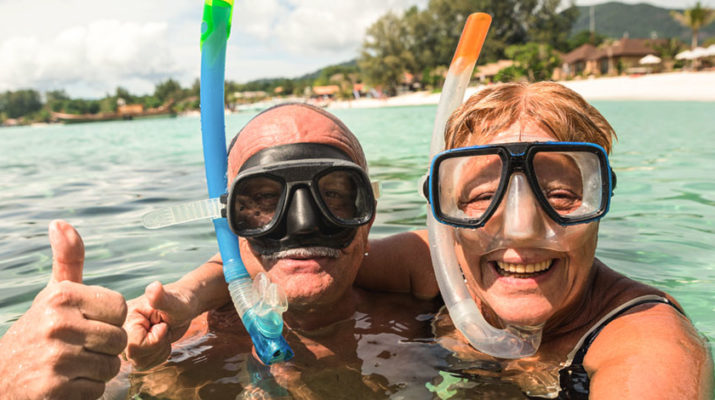Traveling abroad can bring its own challenges to seniors
By Deborah Jeanne Sergeant
Are you a mature adult making plans to travel overseas this winter? Safeguard your health while you’re traveling with these tips from the experts.
Talk with a travel agent about where you want to go and any health issues you have. As you share your health concerns, your agent should be able to tell you about any potential complications.
Matthew Carr, co-owner and travel agent at Carr’s Destination Vacations in Hamburg, said as one example that medication may cause problems in traveling abroad.
“As long as you have it with you and don’t combine your prescriptions into one big bottle, you should be OK,” Carr said. “A lot of people don’t realize that if they take four different medications, they can’t combine them in one bottle. The label should show the prescription on it, what it’s for and that it belongs to them.”
Some medication isn’t permitted in some countries in the Middle East, including some anti-depressants and controlled pain medication. Instead of skipping needed medication, talk with your doctor about what to do.
Carr recommends obtaining a larger supply of medication than needed for the length of the trip abroad — just in case. As long as you show it to airport personnel upfront, you should be fine. He also recommends bringing any medication in a carry-on bag and not checking it.
Any durable medical equipment will also be allowed on planes, trains, cruise ships and buses. Cruise ship travelers should bring any needed mobility equipment, as it would be difficult for cruise ships to provide 50-plus wheelchairs aboard for travelers’ use.
Most airlines maintain a supply for travelers who ask for a chair in advance. It’s not advised to wait until the last minute. It can also help to let an airline employee know–not the skycap employed by the airport if you’re going to be a bit late to the gate because of your mobility issues.
“Most airlines, cruise ships are very accommodating when it comes to travelers bringing medical devices needed for walking or whatnot,” Carr said.
While he can help clients better understand what challenges they may face such as uneven walking surfaces or stairs, “mostly, it’s up to the client on what their physical limitations are. If it involves a lot of walking, I tell them to make sure they’re bringing comfortable shoes and make sure they have a water bottle with them.”
Some who travel by cruise ship want to dress up for nice dinners in formalwear and high heels. But keep in mind that the ships are very large and these types of trips require a good deal of walking even before making port to explore cities.
A travel agent can give you ideas on how to mitigate the rigors of the trip. For example, if you have a heart condition, a week of hiking in ancient ruins at high altitude may not work for you, but a bus tour could make it doable.
Travel agents can also recommend precautions such as vaccinations necessary for some exotic locations or whether or not it’s safe to drink the water or use ice in bottled drinks.
Elizabeth McCulloch, vice president and motor coach operator with D & F Travel, Inc. in Buffalo, thinks that touring by group offers a much safer and easier way to travel. Where to go, stay and eat is pre-planned, which can help travelers avoid illness and injury.
“It’s definitely safer,” McCulloch said. “You have a sense of not being alone.”
Of the many tours she has led, she recalls a couple which involved a traveler needing medical attention. Thanks to traveling in a group, these tourists were able to get help in time.
McCullouch also suggests wearing sensible shoes to prevent injury and dressing in layers to prevent overheating.
She recommends purchasing trip insurance, which can help if you run into a difficulty that shortens the trip, or a temporary health insurance policy, which can cover you while traveling abroad.
That may seem like overkill; however, the healthcare providers in many countries will not provide care unless paid up front. Travel insurance may also cover the cost of transporting home the body of people who die in other countries instead of their loved ones footing the expense.
Make sure you’re up-to-date on all of immunizations, including influenza. Considering that some countries do not vaccinate as widely as America, older adults may be more vulnerable to illnesses not common at home.
It’s also important for safety to ask about the availability of public transportation and if your cell phone will work there.

